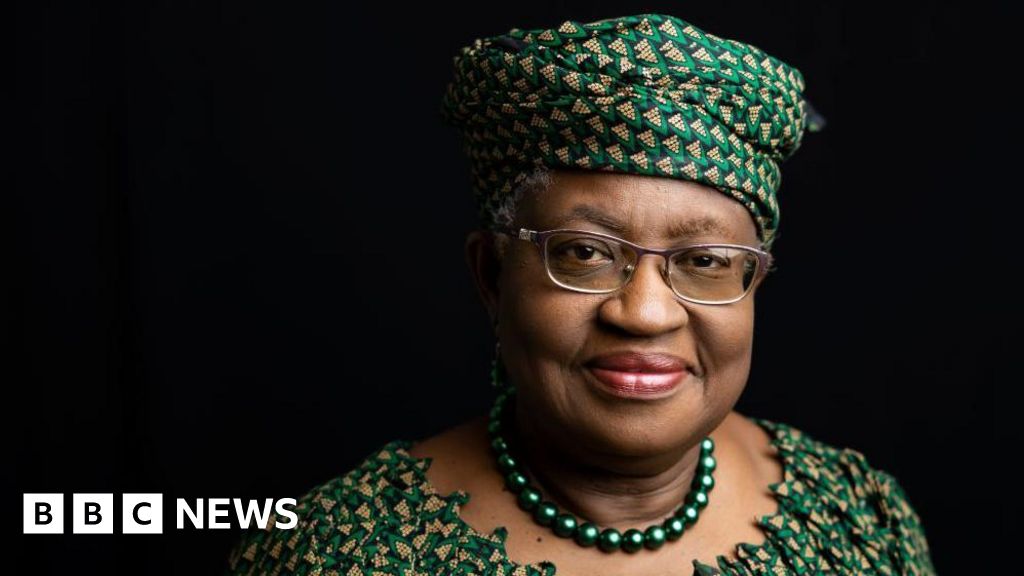Global trade “is not having the best of times at the moment,” according to Dr. Ngozi Okonjo-Iweala, director-general of the World Trade Organization (WTO). “We are seeing increasing protectionism, some undermining of the WTO rules, and this is leading to fragmentation,” she told the BBC.
Dr. Okonjo-Iweala emphasized that global trade is crucial for making countries resilient and supporting growth. Recent weeks have seen significant trade tensions, with the EU imposing provisional tariffs of up to 37.4% on Chinese electric vehicles (EVs). This follows the US’s introduction of 100% tariffs on Chinese EVs in May.
Brussels and Washington accuse the Chinese government of unfairly subsidizing its EV sector, allowing producers to export cars at low prices, threatening Western jobs. President Biden has also increased import taxes on other Chinese products, including EV batteries, solar panel cells, and computer chips.
The US has also invested heavily in green technology through its Inflation Reduction Act, aiming to reduce reliance on Chinese imports.
EU’s Response to Trade Imbalances
EU Trade Commissioner Valdis Dombrovskis stated that Europe does not want to close its market for EVs but insists on fair competition. Last year, global trade volume fell for the third time in 30 years, attributed to higher inflation and interest rates. The WTO forecasts a recovery this year.
IMF’s first deputy managing director Gita Gopinath noted that recent events like the pandemic and Russia’s invasion of Ukraine have fundamentally reshaped global trade. Countries are increasingly guided by economic and national security concerns in their trade decisions.
Dr. Okonjo-Iweala warns that the emerging fragmentation in trade data, where trade between like-minded blocks grows faster than across such blocks, could be costly. WTO research estimates this could price at 5% of the global economy, while the IMF suggests it could be nearer 7% or $7.4 trillion (£5.8 trillion) of lost output in the long run.
Impact on Trade Relations
The EU’s tariffs on Chinese EVs follow a surge in their exports to Europe, jumping from $1.6 billion in 2020 to $11.5 billion last year, according to one study. Chinese companies like BYD, Geely, and SAIC have benefited from significant government support.
Jens Eskelund, president of the European Union Chamber of Commerce in China, argues that Chinese EV companies no longer need this help and that tariffs indicate an imbalance. He notes that the volume of EU goods sold to China has fallen by about a third since 2017, despite China’s steady economic growth.
Eskelund cites Chinese market restrictions and tough security regulations as reasons for this imbalance, adding that Europe remains a more open market to Chinese firms than vice versa.
Efforts to Reduce Dependence on China
The EU aims to lower its economic dependence on China, with European Commission President Ursula von der Leyen advocating for “de-risk not de-couple.” Concerns include China’s use of sensitive technology for military purposes and its support for Russia.
Companies like Ikea, Nike, and Apple are also seeking to reduce reliance on China. While talks between the EU and China on EV tariffs are set to continue, Chinese state media reports suggest retaliatory measures on EU goods are being considered.
Other Trade Barriers
Global trade faces additional barriers, including challenges in two key trade routes. The Panama Canal has reduced ship transit due to a lack of rainfall, while the Suez Canal is impacted by ongoing attacks on commercial ships by Houthi rebels in the Red Sea. This disruption has raised shipping rates by 30-40%, according to Hapag-Lloyd CEO Rolf Habben Jansen.
Despite rising shipping costs, which could drive inflation, Dr. Okonjo-Iweala remains optimistic about trade resilience. She acknowledges the need for WTO rule changes to address climate change challenges, warning against a repeat of the retaliatory tariffs seen in the 1930s.
Original Story at www.bbc.com
